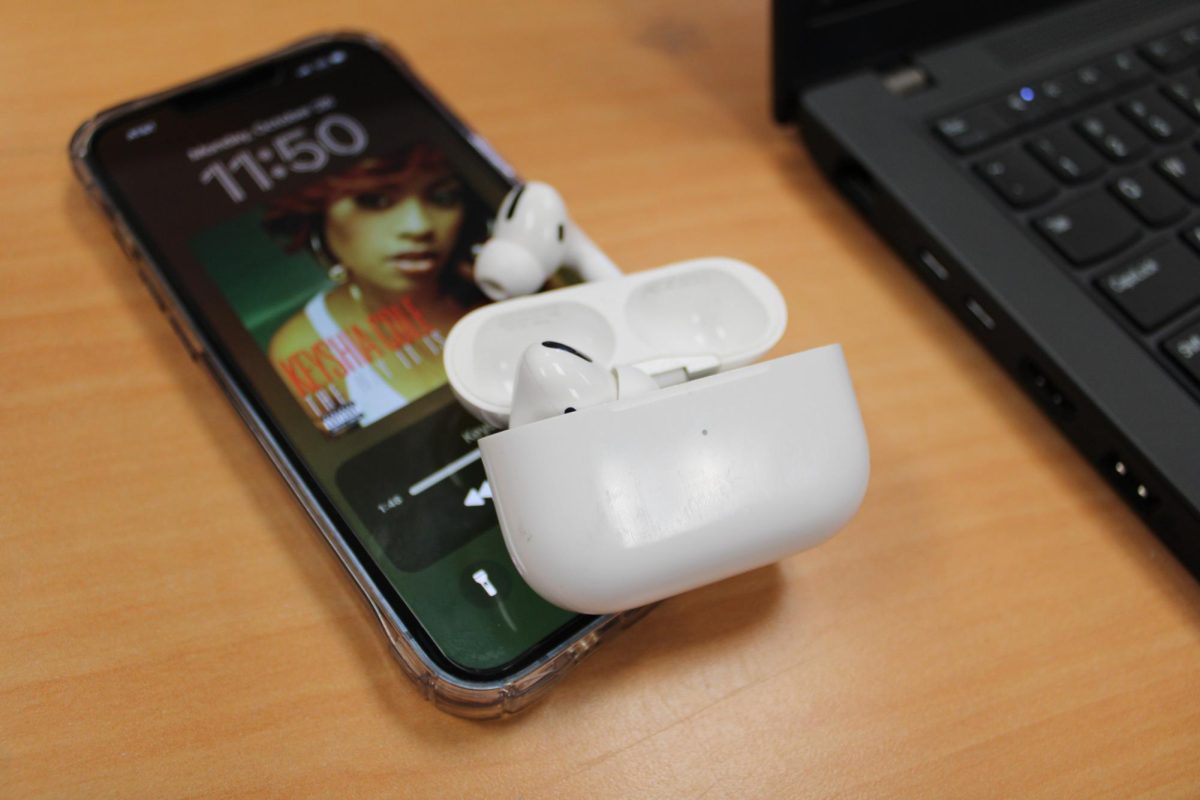At the start of the 2024 school year, Preuss restricted the use of Airpods and headphones by not allowing them to be in our ears as we step onto campus. This recent ban has students upset and questioning the reason behind this newly implemented rule. Most students are not aware that the goal of this ban is to further eliminate distractions from our devices and allow students to be attentive to class and other announcements at all times. A second and more important reason is to keep all students aware of their surroundings on and off campus for their safety. I disagree with this ban because Airpods do not pose as big of a threat as faculty may think and because students can learn to maintain self control and learn when to use them appropriately.
First off, music benefits and promotes overall productivity. It’s not uncommon for students to be given work time in class. For example, students are given work time to complete assignments for other classes in their University Prep class. Some students say they work better, more efficiently, and increase productivity with music. On top of that, some students don’t like silence at all and may need some sort of noise to keep themselves busy. In an article published by Healthline.com titled “Music and Studying: It’s Complicated,” author Crystal Raypole and medically reviewed by Dr. Karin Gepp report that music can trigger your brain in a manner that makes paying attention a less difficult task. Due to this, music allows people to isolate themselves in bubbles, giving them the mental capacities to focus and complete work. In an educational environment, completing assignments is a top priority and headphones are a contributing factor to this.
Secondly, a good portion of Preuss students have free time with not only lunch, but also with either JV or Varsity block, or even electives. During these times, not as much instruction is being given compared to typical classes. During lunch, we’re sitting and conversing with our friends and eating. Because of this we should be given the liberty to enjoy our music during our only and main break time during school. In Athletics, though, we are following our usual routines unless Coach Scott introduces new skills or drills. For example, on the JV basketball team, we complete the same warmup stretches and drills every practice to develop a strong foundation. In those cases we are doing something we already know. It wouldn’t be a distraction to have Airpods on. To back up my reason, according to Arizona State University’s article titled “Music Makes You a Better Athlete”, the author Julia O’Connell mentions that in two separate studies, not only does music provide a mental headspace essential for performance, but those who listen have an improved enjoyment of the activity and put more effort into it.
On the contrary, the reasoning for banning Airpods was for increased safety and focus on campus. As I already mentioned though, music is an extremely helping factor in focus and concentration on work. On the aspect of safety, the most common headphones on campus, being Airpods and Sonys, do not completely reduce the sounds of alarms. Students will be more than capable of hearing them in cases of earthquakes, fires, lockdowns, and more scenarios. This will make all students remove headphones to further understand the situation, allowing them to follow the procedures we already have in place for them.
Without proper guidelines to monitor when Airpods are being used, Airpods and headphones can be a factor in lack of paying attention and being distracted during class. There are many times during our day where we have time to listen and use our Airpods without causing trouble though. Students can always learn to appropriately use them for positive outcomes. Preuss should instead focus more on deciding when they are appropriate to wear, rather than fully banning them.







